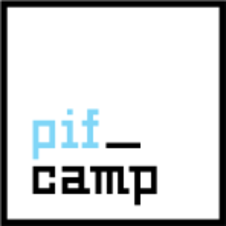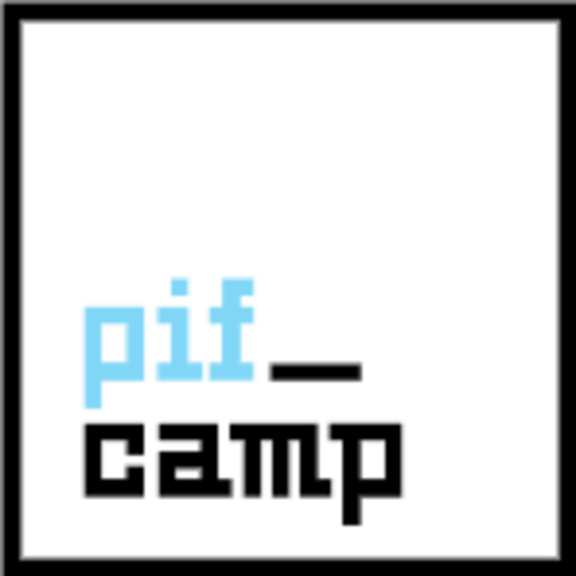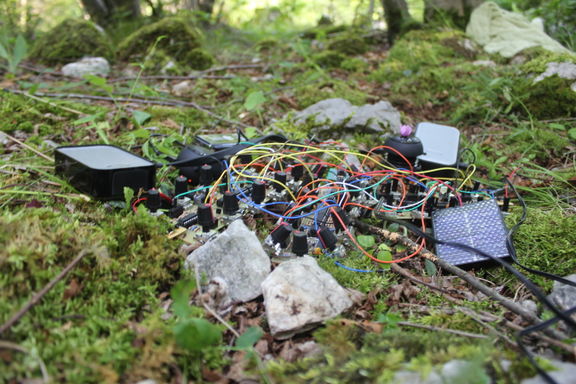PIFcamp
Context and background
First held in 2015, PIFcamp is an extension of the artistic and other endeavours of the Ljudmila lab ant the Projekt Atol Institute. Both of them active in new media art and/or open source related activities, they have since 2012 been running a joint programme of workshops, artist residencies, new media art projects and such.
Conceptualised as an open platform for the distribution of knowledge, ideas and experiences, the camp's fundamental principles are DIY (do-it-yourself), DIWO (do-it-with-others) and DITO (do-it-together).
PIFcamp came to be under the auspices of the Changing Weathers project. Co-funded by the Creative Europe programme of the European Union, the project is coordinated by Projekt Atol and features partners from Norway (Hilde Methi), Finland (the Finnish Bioart Society), Latvia (RIX-C), the Netherlands (Sonic Acts), and Austria (Time’s Up). The basic aim of the project is to facilitate responses towards the geophysical, geopolitical and technological predicaments of our time.
Programme
Styling itself as a hack camp, PIFcamp sees hacking as an activity that disrupts the regular patterns of different uses and treatments of technology. Consequently, the specific focuses of the camp are not pre-defined and depend on interests of the participants. Some of the fields tackled at PIFcamp have been DIY synthesizer-making, e-textiles and wearable electronics, site-specific lighting, kinetic sculptures, and various artefacts and systems that interact with nature.
Each year, a select number of artists and researchers is invited to hold workshops, theoretical lectures and on-sight briefings. Yet, others are equally invited to share their knowledge, and and the roles of the mentors and apprentices frequently change and overlap.
The participants
With the meeting open to anyone (yet limited to about 50 people), the organisers "are looking for hackers, makers, DIY enthusiasts, scientists, thinkers, programmers, noise freaks, new media artists, researchers, obsolete and new technology geeks, bio-artists, engineers, circuit benders, nature lovers and down-to-earth space explorers eager to work with each other for a better tomorrow". A short proposal on what one wants to develop or learn during PIFcamp is needed for those applying to attend.
PIFcamp is a profoundly international event. Some of the hosted artists and researchers up until now have been the Swiss bio-hacker Marc Dusseiller (also of BioTehna), who offered different experiments on local plants, such as sound analysis and chlorophyll extraction; Lynne Bruning, who via embroidery, lace making, and sewing adapted conductive fabrics, threads, and paints into wearable electronics and eTextiles; Petra Edwards aka Casper Electronics (US), who – also in collaboration with Václav Peloušek (Bastl Instruments, CZ) – presented DIY manufacturing of sound and light tools; Hannah Perner-Wilson (AT); and and Leslie Garcia and Paloma Lopez (MX).
Of the local protagonists, one can mention Luka Frelih (of Ljudmila), who created an interactive network that responded to the environment and the people, and Dario Cortese, who led a field workshop on collecting edible wild plants.
Numerous other artists applied by themselves, among them Tom O'Dea (IR), Sebastian Frisch (DE), Robertina Šebjanič, Marko Peljhan and many others.
See also
- Projekt Atol Institute
- Ljudmila Art and Science Laboratory
- Strictly Analog Festival
- Triglav National Park
- BioTehna





